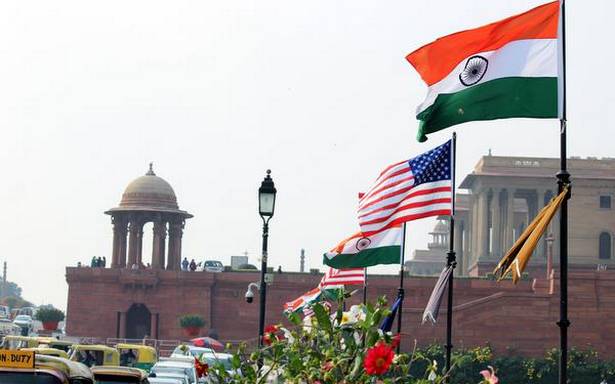The issue of human rights is likely to feature prominently during Blinken’s visit this week
India on Sunday stressed that issues such as human rights and democracy are universal in nature and argued that these values are not limited by “national or cultural perspectives.” Informed sources here elaborated on the current Indian perspective on human rights as it is likely to feature prominently during the visit of U.S. Secretary of State Antony Blinken this week. Officials said India would place Pakistan’s alleged links with financing of terrorists on the agenda of talks with Mr. Blinken.
“Issues such as human rights and democracy are universal and extend beyond a particular national or cultural perspective. India is proud of its achievements in both domains and is always glad to share experiences. As a long standing pluralistic society, India is open to engaging those who now recognise the value of diversity,” said a source. The statement indicates that India prefers a general conversation on human rights instead of bringing its own record on that front to the table.
The argument about the condition of human rights and democratic values in India appears to have been made in clear response to the comments by Dean Thompson, Acting Assistant Secretary of State for South and Central Asian Affairs. Mr. Thompson on Saturday laid out the agenda of Mr. Blinken’s tour and said, “With respect to the human rights and democracy question, yes, we will raise it, and we will continue that conversation, because we firmly believe that we have more values in common on those fronts than we don’t.” The visit of Mr. Blinken is his first to India since the Biden-Harris administration was elected last winter.
U.S. report
In his electoral campaign, President Joe Biden had highlighted that democracy is the source of “American ingenuity.” Following his coming to office, Mr. Blinken had launched the 2020 International Freedom of Religion Report which described India as a “country of particular concern” because of apparent deteriorating record of religious freedom and discrimination against religious minorities.
Mr. Blinken, however, is not the first high level official from the current U.S. administration to visit Delhi in recent months. U.S. Secretary of Defence General Lloyd Austin visited Delhi during March 19 to 21 and Special Presidential Envoy for Climate John Kerry paid a visit in April. The upcoming visit, sources say, is being viewed as one of “considerable importance” that will take up multiple regional, bilateral and multilateral issues.
Afghan situation
“On the regional situation, implications of withdrawal of the U.S. forces from Afghanistan, and the need for sustained pressure on Pakistan on terror financing and terror havens will be part of the agenda,” said the source on growing Indian concern about the evolving situation in Afghanistan where the Taliban have gained greater territorial control in recent weeks as the U.S. ends its military presence in Afghanistan.
India is likely to seek deepening quadrilateral engagement with the U.S., Japan, and Australia in the coming months, especially in the context of the upcoming ministerial Quad meeting later this year. In this context, the issue of Quad vaccine initiative and the need to ensure “consistent supply chains for materials” for vaccine production will also feature in the talks.
The official also said Mr. Blinken would get to hear about the necessity for “fairness” in the world order. “Political and cultural rebalancing are important trends. India supports a truly multipolar, democratic and diverse world order and expects international conversations to reflect this evolution.”
Mr. Blinken, who is expected to meet his counterpart S. Jaishankar and other leading figures in Delhi, will have an opportunity to discuss cooperation with India, especially at the U.N. Security Council, where India is currently serving a non-permanent stint, and will hold the presidency during the coming month.
Source: Read Full Article

